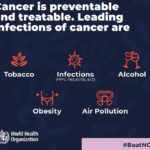Think Positive with optimism. It would be fraudulent to dismiss optimism altogether. Optimism doesn’t increase antibody cell counts but it does aid in strengthening the immune system. Perhaps, what is necessary is to understand how to engage in healthy positivity
Positivity is for a long time seen as the hallmark of psychological health. This fantastical momentum of the word is so attractive that optimism, in the 21st century, has become a consumer commodity. Everywhere that goes, someone is trying to sell optimism. It comes wrapped in different packages. Sometimes, it is the sparkly package of faith at other times it is the somber package of hope. But the question that we should all ask ourselves is that are we approaching positivity negatively?


In today’s pandemic hit the world, it would seem foolish to dismiss the need for optimism but perhaps, it would be disastrous to keep telling ourselves a fictitious story and expecting everything will fall into place. By doing so we risk falling into the vicious trap of optimism bias. If we are optimistic that we will not catch the illness but remain reckless then we are bound to become prays of the proverbial predator. Tali Sharrot (2012) calls this one of the “greatest deceptions” in human history (Sharot, 2012). It has led to many destructive outcomes from economic meltdown to wars. Even India’s tackling of the covid-19 was affected by this fateful bias. But it would be incorrect to dismiss optimism as a smokescreen therefore, perhaps, what is necessary is to understand how to engage in healthy positivity.
Even when it comes to diseases like HIV and cancer there exists a negative relationship between dispositional optimism i.e.,belief that the future outcomes would be better and the course of the disease (C.Segerstrom, 2005). The explanation for this is that because stress forces us to be on-guard and conscientious, it inadvertently helps increase our chances of vigilance and therefore, predicts a better course of progression of the disease. It also doesn’t help increase antibodies in the immune system (Lena Brydona, 2009). But it would be fraudulent to dismiss optimism altogether. Because although dispositional optimism doesn’t account for the eradication of illness, it does, however, affect the mood, T-helper cells, and natural killer cells count in the body. There exists a positive relationship between optimism, elevated mood, T-cell, and natural killer cells count in the body (Segerstrom, 1998). Optimism helps deal with disease-related stress by increasing proactive behavior, reducing avoidant coping, and reducing depression (Gail Ironson, 2005).
How to handle stress?
Therefore, a better way to handle stress would be through learned optimism rather than dispositional optimism. This can be done by what Seligman called the ‘ABCDE’ approach. He derived this from the CBT therapeutic techniques of Aaron Beck and Albert Ellis. This stands for adversity, belief, consequence, disputation, and energization. So, a person should first analyze their adversities. For example- during the pandemic, one adversity may be that one has lost their job. Then they should evaluate their beliefs, for example- one might believe that they will never be able to find another job.
After this one needs to engage in consequence visualization i.e., think of the consequences of your belief. For example- because one feels that they will never be able to get employed again, their self-esteem and self-efficacy go down. The consequence of this could be that they are being unproductive and suffer from additional mental illnesses like anxiety and depression. Then the person should engage in the disputation of this irrational belief. By doing so they will realize the negative effect it was having in their life. finally, they should engage in energization i.e.,after one has disputed the past beliefs, they should create healthy goals that motivate them to achieve more.
This way one can, if not solve problems, at least try reducing the effect of toxic positivity and pessimism. Other additional things that one can do is-
1. Engage in self-talk– the truth remains that humans are best convinced when the opinion comes from within. Therefore, there is no shame in having a conversation with oneself. You will be surprised by your hidden wisdom!
2. Focus on solutions, instead of problems- developing a problem-oriented coping mechanism is always healthier than avoidance-oriented. This will also motivate you to work further.
3. Positive visualization- let your imagination run wild. Think about things that make you feel happier, safer, and comfortable.
In conclusion, I encourage you to explore the vast and magical territory of optimism but don’t be too mesmerized by its fantastical nature. The important thing to remember is that one has what one needs within themselves. Optimism doesn’t increase antibody cell counts but it does aid in strengthening the immune system. Therefore, whenever you are tormented by demons think about the line from the Albert Camus poem, an invisible summer- “In the depth of winter, I finally learned that within me, there lay, an invincible summer. And, that makes me happy. (Camus, 1958)”


Srishti Sharma
UG student from CHRIST (deemed to be university).
(under the guidance of Dr. K Jayasankar Reddy)
References
- C.Segerstrom, S. (2005). Optimism and immunity: Do positive thoughts always lead to positive effects? Brain, Behaviour, and Immunity, 195-200.
- Camus, A. (1958). the invincible summer. new york George Braziller, Inc.
- Gail Ironson, E. B. (2005). Dispositional optimism and the mechanisms by which it predicts slower disease progression in HIV: proactive behavior, avoidant coping, and depression. International Journal of Behavioral Medicine, 86–97.
- Lena Brydona, C. W. (2009). Dispositional optimism and stress-induced changes in immunity and negative mood. Brain, Behaviour, and Immunity, 810-816.
- Segerstrom, S. C. (1998). Optimism is associated with mood, coping, and immune change in response to stress. Journal of Personality and Social Psychology, 1646-1655.
- Sharot, T. (2012). The Optimism Bias: Why we’re wired to look on the bright side. New York: Random House.











